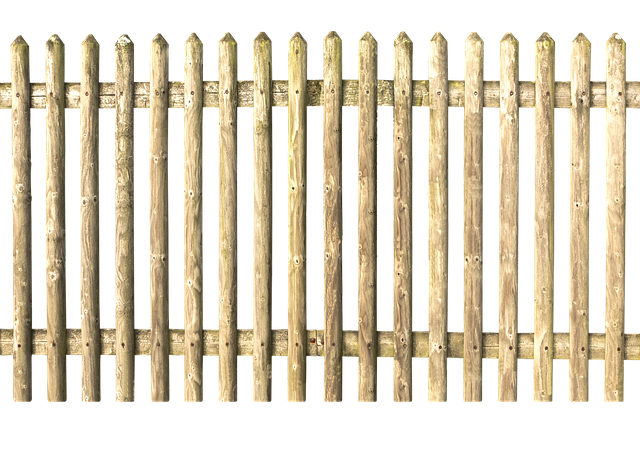In the quest for sustainable living, New Bedford, MA, is at the forefront of eco-friendly fencing trends. This coastal city is exploring alternative materials that not only enhance property aesthetics but also contribute to a greener environment. This article delves into the world of natural and recycled fencing options, highlighting their benefits, durability, and environmental impact. From locally sourced wood and bamboo to recycled plastics, we explore how these choices can transform your property while fostering ecological stewardship.
- Understanding Eco-Friendly Fencing Trends in New Bedford
- Natural Materials: Wood and Bamboo Options for Fencing
- Recycled Plastics: Durable and Sustainable Alternatives
- Benefits of Eco-Friendly Fencing for Your Property
- Local Installation and Maintenance Considerations
- Long-Term Savings and Environmental Impact
Understanding Eco-Friendly Fencing Trends in New Bedford
In recent years, there’s been a noticeable shift towards eco-friendly fencing materials and practices in New Bedford, MA. This trend reflects a broader environmental consciousness among residents and local businesses, driven by the city’s commitment to sustainability initiatives. Homeowners and contractors are increasingly opting for fencing solutions that minimize ecological impact without compromising aesthetics or functionality. Natural, renewable resources like wood from sustainable sources, bamboo, and recycled plastic are gaining popularity as alternative options to traditional materials such as vinyl and metal.
New Bedford’s embrace of eco-friendly fencing trends is not just a local phenomenon but part of a global move towards sustainability. The city’s diverse landscape and temperate climate offer ideal conditions for cultivating native plants and utilizing locally sourced materials, further enhancing the environmental benefits. As awareness grows about the positive impact on local ecosystems, water quality, and carbon footprints, it’s expected that these trends will continue to gain traction in New Bedford and beyond.
Natural Materials: Wood and Bamboo Options for Fencing
Natural materials, such as wood and bamboo, offer eco-friendly fencing options that are both aesthetically pleasing and sustainable. In New Bedford, MA, where environmental consciousness is growing, these materials are gaining popularity for both residential and commercial projects. Wood, a classic choice, can be sourced responsibly from managed forests, ensuring a constant supply while minimizing the carbon footprint associated with transportation. Bamboo, known for its rapid growth, provides an even more sustainable option. It absorbs significant amounts of carbon dioxide and has a lower environmental impact compared to traditional wood fencing.
These natural materials not only contribute to a greener environment but also enhance the visual appeal of any property. Wood fences offer a timeless elegance, while bamboo adds a modern twist with its unique texture and color variations. Furthermore, both materials are durable and can last for years with proper maintenance, making them cost-effective choices in the long run.
Recycled Plastics: Durable and Sustainable Alternatives
Recycled plastics offer an eco-friendly alternative to traditional fencing materials, providing both durability and sustainability. These materials are crafted from repurposed plastic waste, such as bottles and packaging, which helps divert debris from landfills and reduces our reliance on virgin resources. By choosing recycled plastic fencing, residents of New Bedford can contribute to a more sustainable environment while enjoying the benefits of long-lasting, weather-resistant barriers.
This option is particularly advantageous for areas with harsh climates, as recycled plastics can withstand extreme temperatures and precipitation without compromising integrity. Moreover, their low maintenance requirements make them an attractive choice for busy homeowners and property managers. With proper care, these fences can last for decades, providing a reliable and aesthetically pleasing boundary for outdoor spaces in New Bedford, MA.
Benefits of Eco-Friendly Fencing for Your Property
Eco-friendly fencing materials offer numerous advantages for homeowners in New Bedford, MA, looking to enhance their property while promoting sustainability. One of the key benefits is their environmental friendliness; these materials are typically made from recycled or renewable resources, reducing the carbon footprint associated with traditional fencing options. This not only contributes to a greener planet but also ensures that your choice aligns with responsible land stewardship.
Additionally, eco-friendly fences can significantly improve the aesthetic appeal of your property. With various natural textures and colors available, these fences can blend seamlessly into their surroundings, creating a harmonious outdoor space. They often require less maintenance compared to conventional fencing, saving you time and money in the long run. Moreover, many of these materials are designed to withstand harsh weather conditions, ensuring longevity and minimal replacement needs.
Local Installation and Maintenance Considerations
When opting for eco-friendly fencing materials in New Bedford, it’s crucial to consider local installation and maintenance aspects. Many sustainable fencing options require specific installation techniques to ensure their structural integrity and longevity. For instance, natural materials like bamboo or recycled plastic might demand skilled craftsmanship to properly secure them, adhering to local building codes.
Maintenance plays a significant role as well. While some eco-friendly materials may need minimal upkeep, others necessitate regular cleaning, sealing, or replacement of components. Understanding these maintenance requirements and ensuring readily available local resources for repairs or replacement parts is essential to keeping your fencing both aesthetically pleasing and functional over time.
Long-Term Savings and Environmental Impact
When it comes to long-term savings, eco-friendly fencing materials offer a compelling case. While initial installation costs might be slightly higher compared to traditional options, these materials are designed to endure and perform well for extended periods. Wooden fences, for instance, often require frequent replacement due to rot or pest damage, leading to cyclical expenses. In contrast, bamboo, recycled plastic, or composite fencing is resistant to decay, splitting, and warping, significantly reducing maintenance needs and associated costs over time.
The environmental impact of these materials is another significant advantage. Traditional wooden fences contribute to deforestation and, in some cases, use pressure-treated chemicals that can leach into the soil and water. Eco-friendly alternatives, on the other hand, are made from renewable resources or recycled materials, minimizing the carbon footprint at every stage of production and installation. By choosing these sustainable options, New Bedford residents not only save money but also play a part in preserving the local ecosystem and promoting a greener community.
